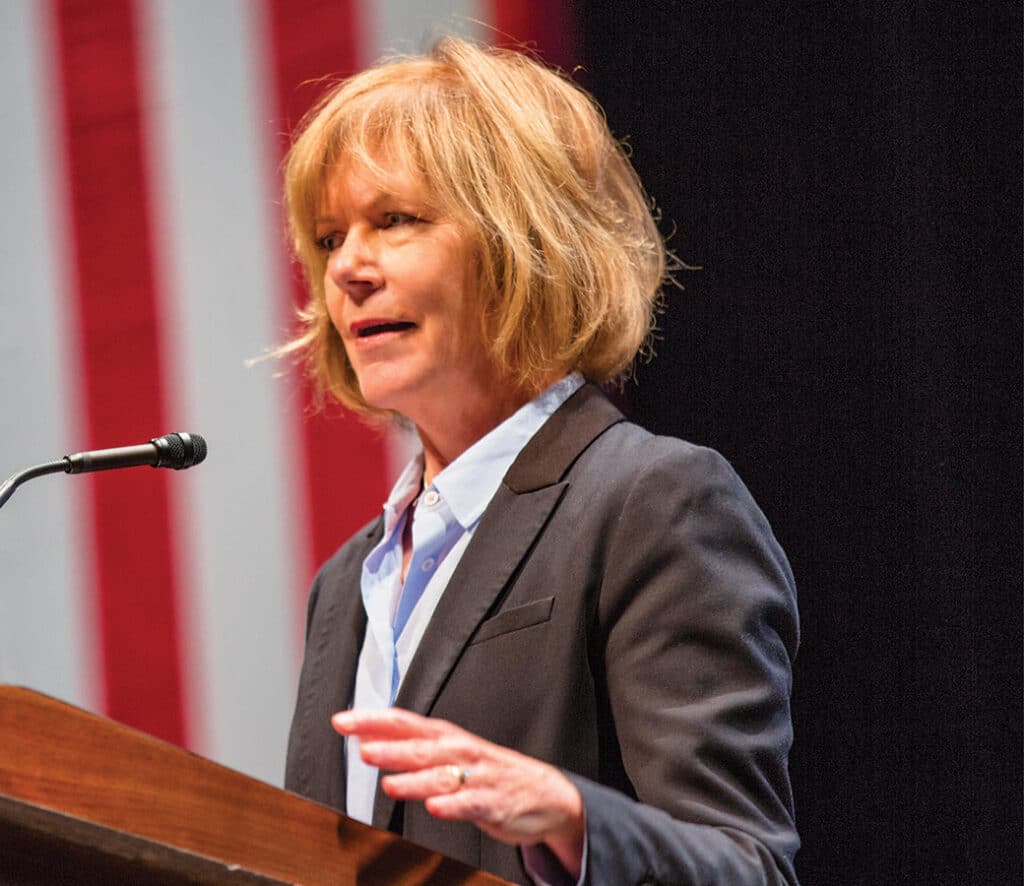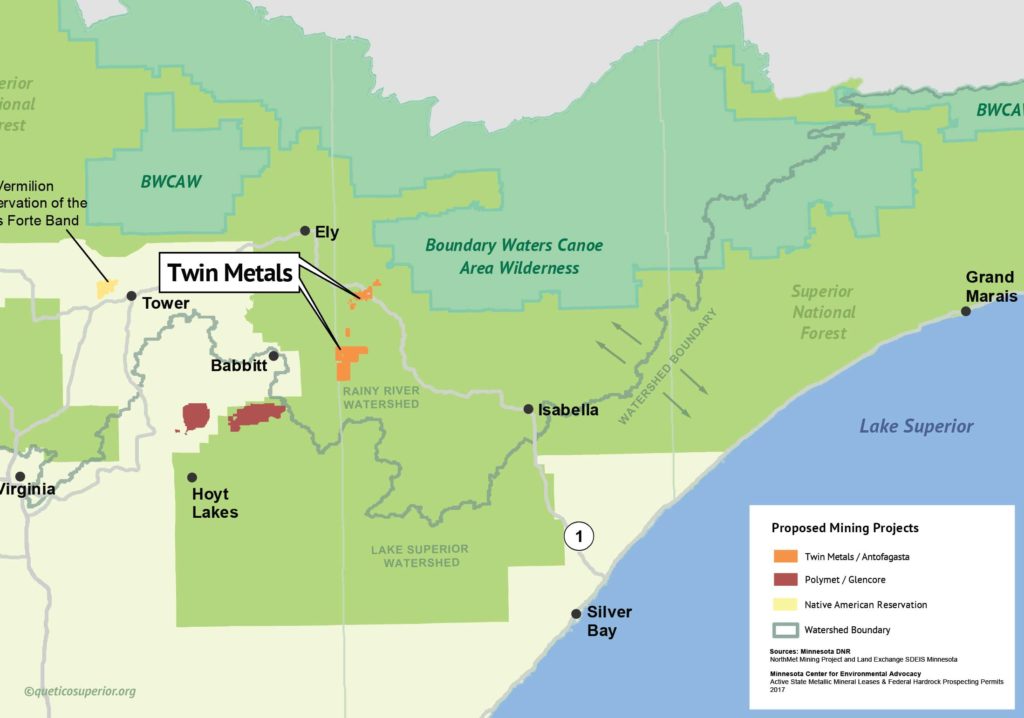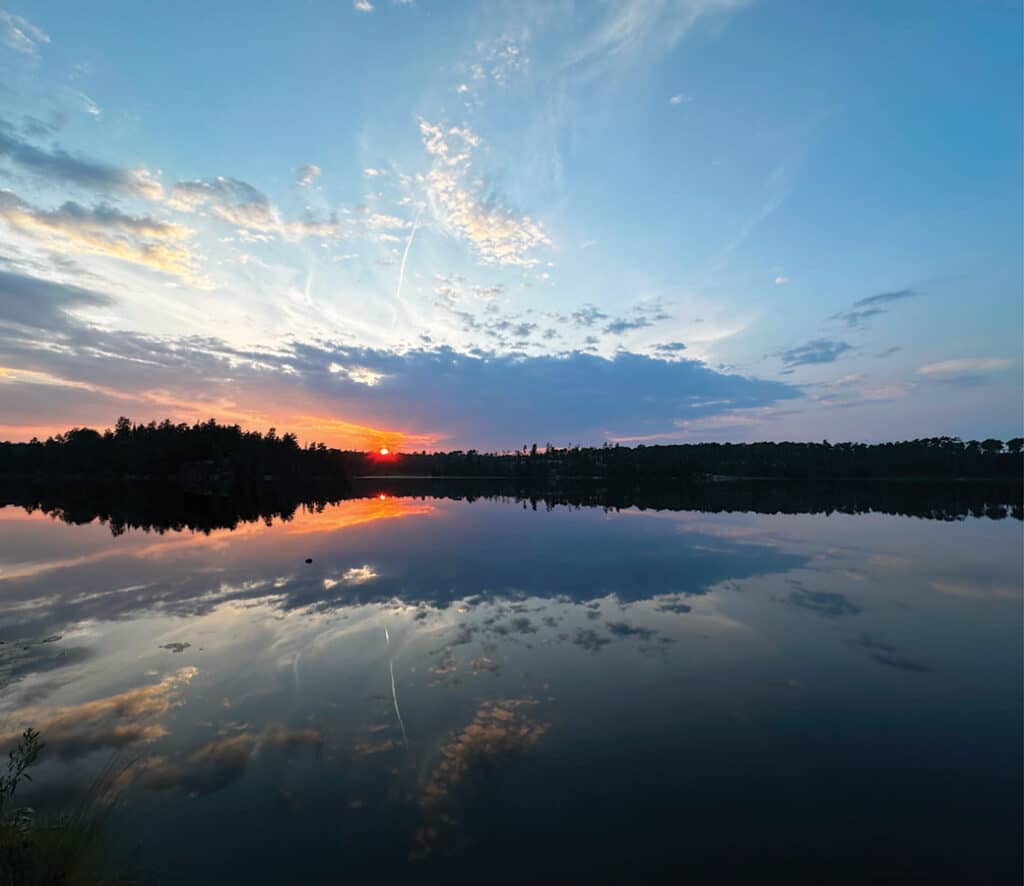
For the first time in 50 years, the U.S. Senate has introduced legislation to protect the Boundary Waters Canoe Area Wilderness (BWCAW). Earlier this week, U.S. Senator Tina Smith introduced the Boundary Waters Wilderness Protection Act, a bill that would permanently safeguard the region. If passed, it would mark a major victory for those fighting to block sulfide-ore copper mining near the wilderness in northern Minnesota.
The lands surrounding the BWCAW have long sparked tension between environmental advocates and mining interests. While the wilderness itself spans over a million acres, many nearby watersheds flow north into some of the cleanest waters in the world—raising the stakes of any industrial activity nearby.
For decades, Twin Metals Minnesota has pushed to reinstate two mineral leases that would allow the state’s first-ever sulfide-ore copper mine. Chilean mining company Antofagasta owns the project with plans to build the complex just south of the town of Ely.
“Mining drives a big part of Minnesota’s economy and is a point of pride for every Iron Ranger,” said Senator Smith. “I support mining—but not this mine, and not in this precious place. A majority of Minnesotans oppose mining in the Boundary Waters watershed, and I’m prepared to use every tool I have to protect one of America’s greatest wilderness areas.”

Mining opponents cite risks
The U.S. Forest Service (USFS) has conducted studies showing that sulfide mining near the BWCAW and Rainy River watershed could cause significant harm to the landscape, wildlife, and human health.
Environmental groups, including Save the BWCA, argue that sulfide mining creates waste rock full of sulfates. When exposed to air and water, those sulfates form sulfuric acid, which leaches heavy metals into the surrounding waters.
Ingrid Lyons, Executive Director of Save the BWCA, praised Senator Smith’s leadership. “With this historic legislation, Senator Smith is standing on the shoulders of giants and following in the footsteps of a host of Minnesotan and National leaders who have stepped up to protect this sacred and unique place. She went on to add, “Senator Smith’s bill is a critical step toward permanent protection for this iconic landscape, safeguarding its natural beauty, wildlife, unique ecosystem, and the outdoor economy that depends on it.”
New mine could boost economy
However, Twin Metals argues that the project would boost the local economy. The underground complex would create an estimated 750 direct jobs and another 1,500 in related industries. Over 25 years, the company expects to extract 20,000 tons of ore per day.
They report that the ore processing will remove most of the sulfide minerals. As a result, they say tailings will not produce acid rock drainage. In addition, up to half of the tailings will be utilized as backfill in the underground mine while tailings on the surface will be dry stacked. Within the first ten years of operation, the company expects profits and revenue to exceed $12.11 billion. When the site closes, Twin Metals reports that most of the infrastructure will be removed and the area restored.
Congressman Pete Stauber supports the benefits the mine could bring to the state. In an article by MPRNews, he said, “We have the ability to do it [mining] right, following our environmental and labor laws. We do it better in our backyard, and I want to celebrate that. And I think that when we follow the strict laws we have, we ought to be able to mine these God-given natural resources.”
The bill’s objectives
If passed, the bill would ban sulfide mining on 225,504 acres of federal land within the Rainy River Watershed—where waters flow into the BWCAW and Voyageurs National Park. It would still allow the USFS to authorize the removal of sand, gravel, granite, iron ore, and taconite within the protected zone.
The legislation would not restrict new or existing mining projects outside the withdrawn area, nor would it affect taconite operations that extract only iron ore. It also wouldn’t interfere with state-level leasing, environmental regulations, or permitting processes. Notably, it wouldn’t require the federal government to acquire land that is currently state, local, or privately owned land.
According to an MPRNews article, Smith is the third member of Minnesota’s congressional delegation to propose mining-related legislation near the BWCAW this year. In January, Rep. Betty McCollum of Minnesota’s 4th District introduced a similar bill in the House. Then, in February, Rep. Pete Stauber of Minnesota’s 8th District reintroduced a competing bill that would reverse the mining ban and reinstate Twin Metals’ leases.
Any mining project in Minnesota must first undergo a lengthy environmental review process and secure state approvals— a process that often takes years. Still, environmental advocates hope this bill will stop the proposed Twin Metals Minnesota mine for good.

More info:
- U.S. Senator Tina Smith introduces legislation to protect the Boundary Waters Canoe Area Wilderness from sulfide mining – Rep Tina Smith
- Sen. Smith introduces bill to ban copper mining near the Boundary Waters – MPRNews
- Stauber Reintroduces Superior National Forest Restoration Act – Rep Pete Stauber

